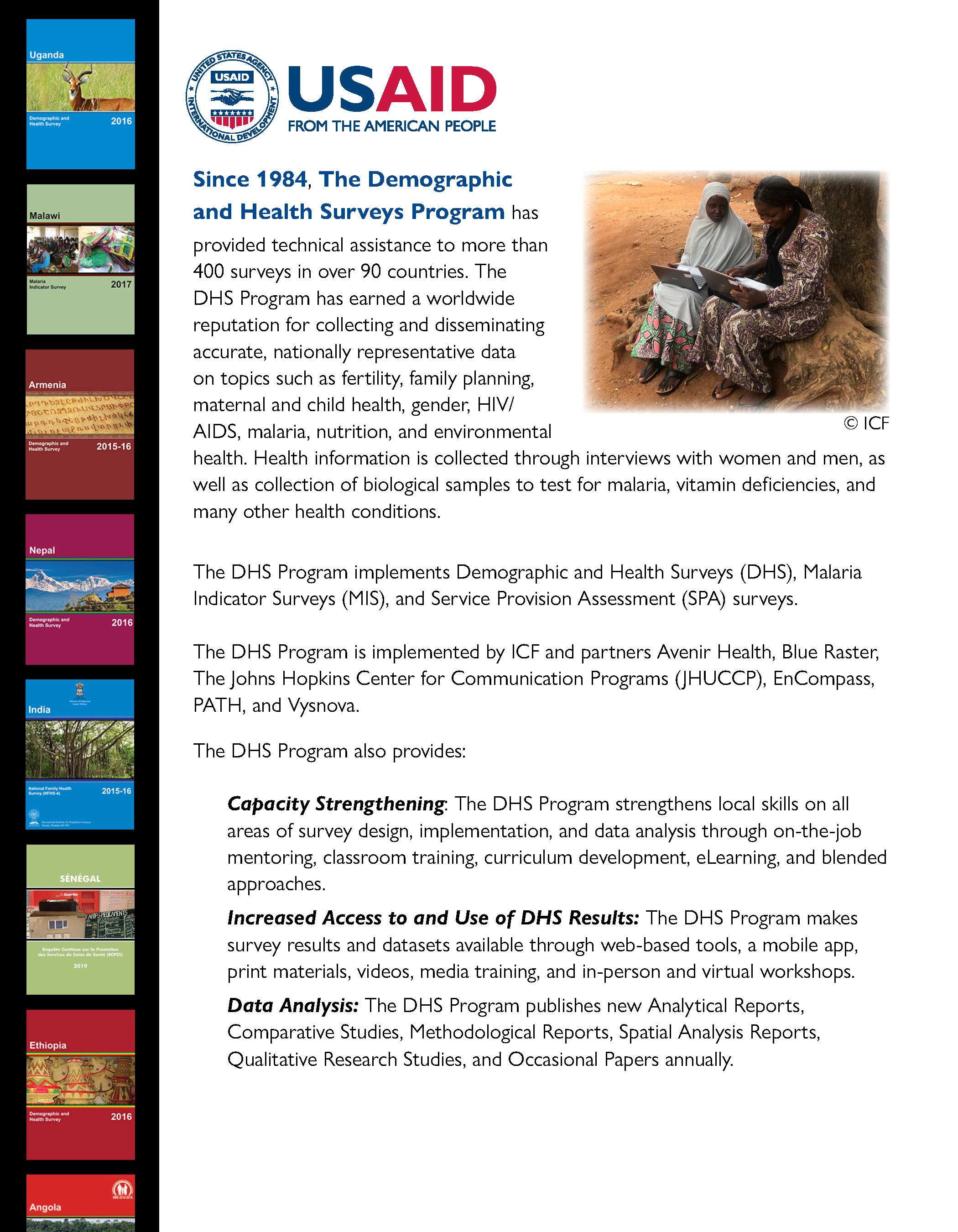| Body: |
Calverton, MD. According to the recently released 2006 Niger DHS Multiple Indicator Survey, vaccination for children has improved, but women’s fertility remains very high and there has been no improvement in maternal health since the last survey was conducted in 1998.
Child Health
Childhood vaccination rates have improved, but continue to be of concern. Less than a third (29 percent) of children 12 to 23 months are fully vaccinated against tuberculosis, diphtheria, tetanus, polio, pertussis, and measles.
Most infants and young children are breastfed, but only half start breastfeeding in the hour following birth, as recommended. In Niger, only 14 percent of children younger than 6 months are exclusively breastfed. Half of children receive supplemental foods before beginning breastfeeding.
Malnutrition among children is high in Niger. Half of all children in Niger and 61 percent of children age 12 to 47 months are too small for their age.
Maternal Health
Fertility rates in Niger remain very high: women give birth to an average of 7.1 children. The TFR, or total fertility rate, varies by residence and education. Uneducated women have an average of 7.3 children compared to 4.6 children on average for the most educated women. Women from Niamey have the lowest fertility, at 5.3 children on average, and those in Maradi have 8 children on average. Only 5 percent of women in union are currently using a modern contraceptive method.
Maternal mortality is also high in Niger. Per 100,000 live births during the period of 1996-2006, 648 women died from maternal causes. This number has barely changed since 1992, when it was estimated at 652 deaths per 100,000 live births. Niger’s maternal mortality rate remains higher than many of Niger’s neighbors, such as Mali, Cote d’Ivoire, Gabon and Togo.
Only 17 percent of births take place in a health facility, and only a third of births are assisted by a trained health professional. Assisted deliveries have decreased from 44 percent in 1998 to 33 percent in 2006. Three quarters of women in rural areas give birth without trained professional assistance, compared to 21 percent in urban areas. The majority of the wealthiest women had professional assistance at childbirth.
HIV/AIDS
Less than one percent (0.7) of men and women ages 15 to 49 in Niger are infected with HIV. Most adults, 83 percent of women and 95 percent of men, have heard of AIDS. Only 13 percent of women and 19 percent of men, however, know that using condoms and limiting sexual relations to one non-infected partner reduces the risk of contracting HIV. Similarly, few adults reject the most common myths about HIV/AIDS. One woman in ten knows that AIDS can be transmitted by breastfeeding and that the risk can be reduced through special drugs during pregnancy.
The 2006 Niger DHS Multiple Indicator Survey, also known as the 2006 Enquête Démographique et de Santé et à Indicateurs Multiples (EDSN- MICS III), is a nationally representative survey of 9,223 women age 15-49 and 3,549 men age 15-59. The EDSN-MICSIII was implemented by the Institut National de la Statistique (INS) with technical assistance from Macro International, Inc. with the collaboration of the Centre de Recherche Médicale et Sanitaire (CERMES) for HIV testing. The survey was implemented with the financial support of UNICEF, USAID, UNFPA, UNDP through the Programme Bonne Gouvernance et Croissance Mieux Répartie, WHO, and the World Bank by means of the Coordination Intersectorielle de Lutte Contre les IST/VIH/SIDA (CISLS). Data collection for the EDSN-MICS III was conducted from January to May 2006.
|
